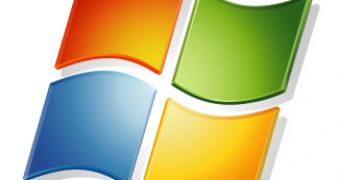As far as Microsoft is concerned there is only one choice possible in terms of desktop clients. But Windows Vista is also the clear option over Windows XP when it comes down to the Redmond company's preferred operating system for mobile PCs. One of the most important aspects of large scale deployments of operating systems is related to costs. But of course that the licenses necessary to deploy the platform are merely the initial part of the financial resources associated with the deployment and management processes, following the installation. And in this context, it all comes down to the Total Cost of Ownership.
Wipro Technologies and GCR Custom Research performed a Microsoft commissioned survey on Mobile PC Total Cost of Ownership, contrasting Windows Vista to Windows XP. Microsoft has applauded Vista as a beneficial factor when introduced into a corporate infrastructure and the "Reducing TCO with Windows Vista - Quantified Savings for Mobile PCs" survey does nothing more than to recommend the latest operating system from the Redmond company as a panacea for reducing TCO.
"Based on in-depth surveys performed for this paper, we identified three sources that reduce the TCO for mobile PCs: Windows Vista Enterprise "out of the box" feature benefits, "Best practices"7 enabled by Windows Vista to improve Infrastructure Optimization (IO), and Microsoft Desktop Optimization Pack (MDOP). By combining these technologies and best practices, organizations can reduce mobile computing TCO costs by $605/PC annually, from $4,407 in Windows XP to $3,802 in Windows Vista, which is 14% lower than the mobility TCO in Windows XP," the report revealed.
"These savings were realized by employing such Windows Vista innovations as BitLocker Drive Encryption to enhance security, Network Diagnostics for improved troubleshooting, and integrated search functionality to boost productivity," stated Nick White, Microsoft Product Manager. "The study also noted that Windows Vista-deploying organizations were able to lower the risk in complying with regulatory requirements such as Sarbanes Oxley (SOX) and Health Insurance Portability and Accountability Act (HIPAA). Specific innovations in Windows Vista contributing to these gains were the risk reduction offered by BitLocker, increased control afforded via User Account Control and group policies, and the ability to reduce compliance testing costs through Microsoft Desktop Optimization Pack (MDOP) Applications Virtualization."

 14 DAY TRIAL //
14 DAY TRIAL //